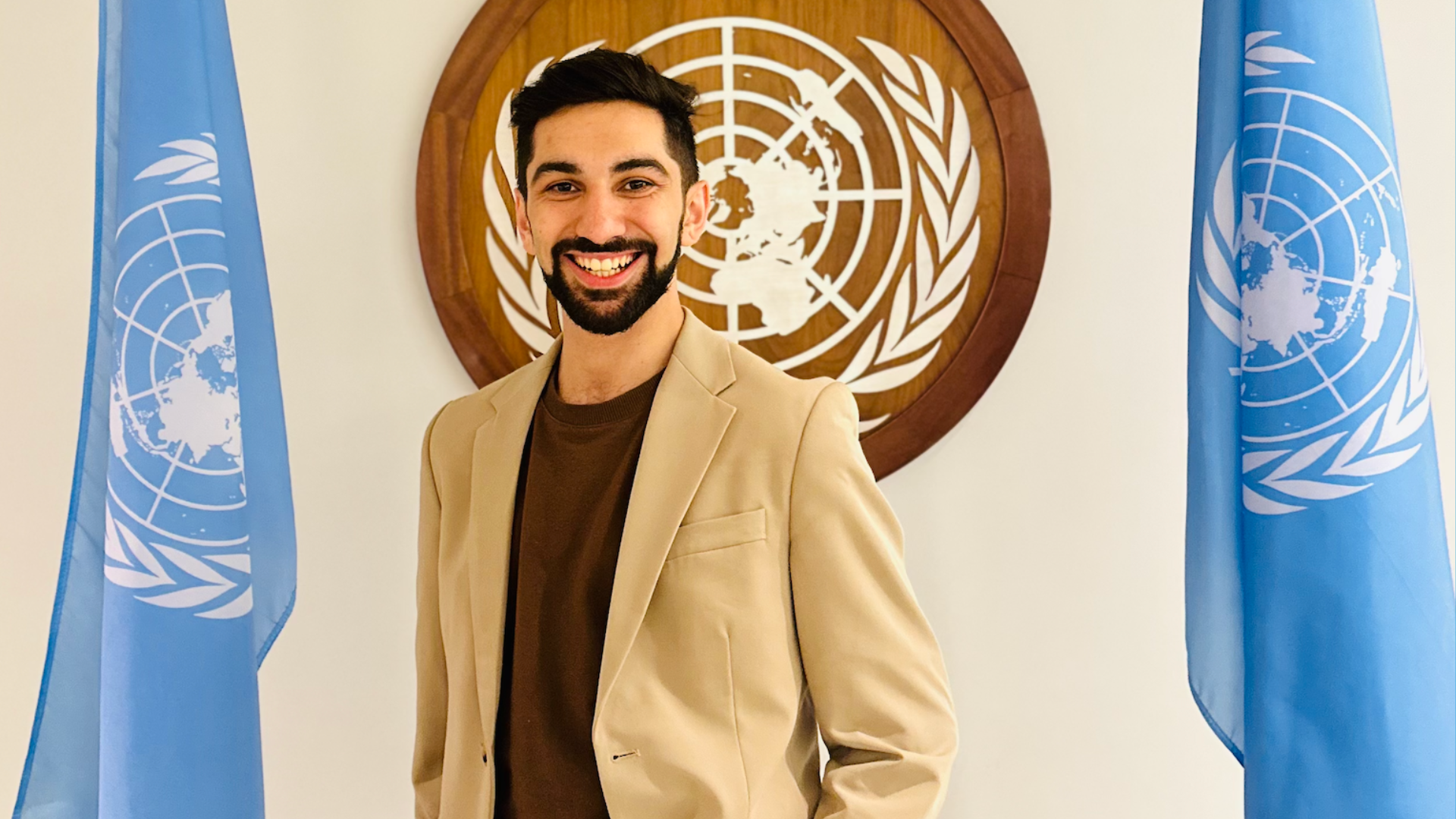Take five: “Participatory policy-making and meaningful youth involvement are vital in our rapidly changing world”
Date:

Photo: Karimot Obedobe
Roman Gojayev is a 26-year-old international facilitator, multidisciplinary artist, youth and gender activist from Baku, Azerbaijan. As the co-founder and development director of Gender Hub Azerbaijan, he champions inclusive youth participation and gender equality. Roman's work spans human rights education, youth inclusion, and policy advocacy, focusing on engaging young men as allies in promoting gender equality. He is a member of several international youth and rights organizations, bringing his passion for social progress to both local and global stages. Roman also participated as a facilitator during the second youth and adolescent dialogue in preparation for the 30th anniversary of the Beijing Declaration and Platform for Action.
What does gender equality mean to you as a young person today, and how do you think this understanding has evolved over time?
Gender equality means fair treatment of every individual with respect and dignity, free from stereotypes and biases. Growing up in a neighborhood where people often faced discrimination based on differences, I learned the importance of being confident in my own uniqueness. Today, gender equality is about recognizing and celebrating our differences, ensuring equal opportunities and rights for all. This understanding has evolved to include a more intersectional approach, acknowledging how equality intersects with other forms of discrimination. However, more systematic changes in politics and policies are needed to adequately protect women from violence and to support people with different gender identities.
By bringing young people in front and engaging various stakeholders, I co-founded Gender Hub Azerbaijan, a youth-centered feminist organization dedicated to uniting grassroots initiatives, private sector, government, and international organizations. Our multistakeholder approach aims to address gender stereotypes and advance gender equality in the country. We conduct educational training, digital campaigns, and policy advocacy to bring the attention to gender justice that it deserves in a country where gender-based crime news has become a daily occurrence in the press.
In your experience, how can we ensure that efforts for gender equality are truly inclusive and represent diverse youth perspectives?
Ensuring that efforts for gender equality are inclusive requires mutual respect, stemming from fair and accessible education that promotes a human rights culture. Human rights education (HRE), which emerged in 1968 and has evolved, is fundamental to this process. HRE educates individuals for a common goal of inclusion, diversity, and ultimately, love and respect. It emphasizes understanding and valuing human rights in an environment where all voices are heard. By applying non-formal education methodology, we turned homophobes into allies, bullies into friends, haters into advocates and many more stereotypes into the story.
Achieving sustainable, peaceful societies that respect diversity and inclusion requires education that empowers individuals to embrace their values and unique personalities. This approach cultivates a young generation aware of and committed to equality and rights, ensuring diverse youth perspectives in these efforts.
How can we inspire young men to become active allies in promoting gender equality, and what specific roles or actions do you think are most impactful for them to take?
Recognition is the key! Young men need to understand the challenges they face due to gender inequality in their society and family. Involving men becomes easier when they recognize the relevance of these issues to their realities within social norms bringing injustice - economic or social.
Only by healing the generational traumas, we could reach justice stolen from our individuality and creativity hidden in our identities. The first action is for them to want to heal this. Once they educate themselves by joining non-formal programs promoting gender justice, they may relieve themselves of traditional societal responsibilities, and heal from the generational traumas.
We have organized Papa School projects in Azerbaijan (partnering with UN Women and UNFPA), which successfully encouraged men and fathers to challenge stereotypes, prejudices, and discrimination. They became responsible fathers who shared the workload at home and supported their children equally. This was impossible without non-formal education and a collective desire to learn.
What do you think will be the biggest challenges for gender equality in the next 10 years?
For the decade to come, neglecting an intersectional approach could pose a significant challenge to gender equality. Marginalized groups, such as people of color, rural women with disabilities, and boys experiencing bullying, will face different challenges across different parts of the world. Intersectionality will be crucial to consider, especially in contexts such as, but not limited to, involving anti-feminist and patriarchal governments, women in conflict zones, people living without access to resources, and individuals discriminated against by artificial intelligence and technologies and more to come. Additionally, geographical areas heavily impacted by climate change will further exacerbate issues like gender dysphoria, making intersectional approaches essential for addressing these complex and layered challenges.
As we prepare for the 30th anniversary of the Beijing Declaration, how do you think young voices can best contribute to shaping future policies on gender equality?
As a gender activist, it is deeply concerning that 30 years after the Beijing Declaration, the promises made are not even halfway fulfilled. Most countries haven't ratified or developed National Action Plans for UN Youth, Peace, and Security either Women, Peace, and Security agendas.
In post-conflict Azerbaijan, we, as civil society, strive to ensure all women, including youth, are protected, supported, and included in decision-making. Emphasizing advocacy and activism is crucial as young people can lead campaigns and grassroots movements for awareness and policy changes. Participatory policy-making and meaningful youth involvement are vital in our rapidly changing world. Representation is key in Beijing processes, including voices of women, men,women in conflict, and marginalized groups facing bullying, hate speech, and crimes. Diverse representation guarantees inclusive policies for all communities.